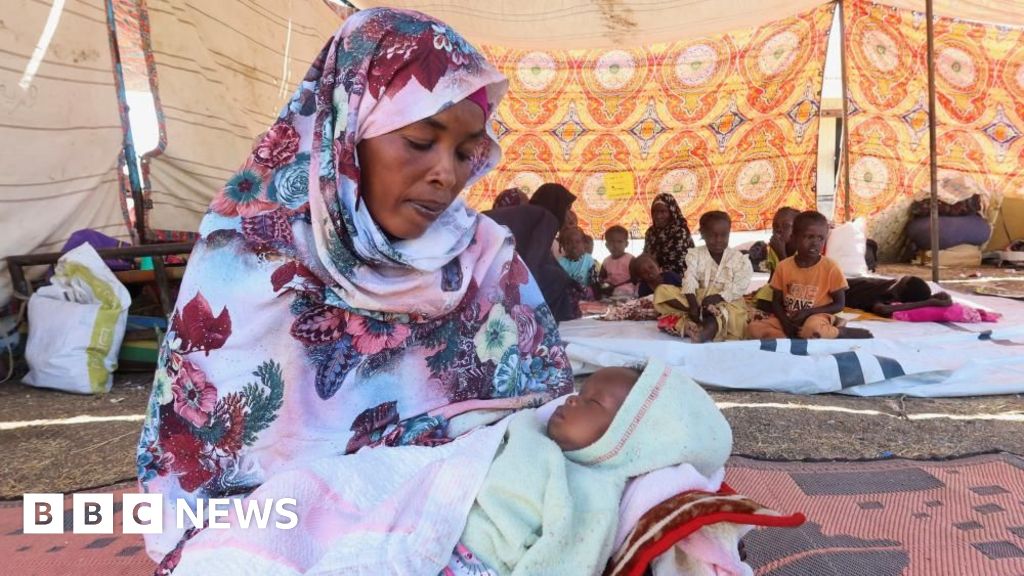The UK calls vetoing a ceasefire plan a "disgrace" but Russia says Sudan's sovereignty is being ignored.

www.bbc.com
In a move strongly condemned by the UK and US, Russia has vetoed a draft UK-backed UN Security Council resolution calling for a ceasefire in Sudan.
British Foreign Secretary David Lammy called the veto a "disgrace". But Russia accused the UK of meddling in Sudanese affairs without involving Sudan itself.
Sudan's 19-month civil war is believed to have led to the deaths of tens of thousands of people. More than 11 million have been forced from their homes.
Aid workers say the conflict has created the world's worst humanitarian crisis, with many thousands at risk of famine.
Sudanese activists have been highly critical of the UN for being slow to respond to the conflict.
It began in April last year after the army and a powerful paramilitary group, the Rapid Support Forces (RSF), began a vicious struggle for power.
The military is in control of the government.
Monday's draft resolution, proposed by the UK and Sierra Leone, called on both sides to immediately halt hostilities and start talks aimed at agreeing a national ceasefire.
It also called on the army and RSF to respect previous agreements to protect civilians, but specifically mentioned RSF attacks in the western region of Darfur and elsewhere in the country.
Sudan's representative at the UN said that clauses that it wanted in the text were not included.
Aside from Russia, all the other 14 Security Council member states voted in favour of the draft, but the veto meant the resolution did not pass.
"This Russian veto is a disgrace and it shows to the world yet again Russia’s true colours," Lammy told the meeting in New York.
"I ask the Russian representative in all conscience sitting there on his phone. How many more Sudanese have to be killed? How many more women have to be raped? How many more children have to go without food before Russia will act?"
US ambassador to the UN Linda Thomas-Greenfield was equally outspoken, accusing Russia of obstructing moves "to address the catastrophic situation in Sudan, and playing both sides – both sides of the conflict to advance its own political objectives, at the expense of Sudanese lives".
Russia was once seen as backing the RSF in the conflict, but appears to have switched sides.
Russia's representative at the UN, Dmitry Polyanskiy, said that Sudanese sovereignty was being ignored, adding that the UK-backed resolution was "an attempt to give themselves an opportunity to meddle" in what was happening in Sudan.
"Shame on you, the UK!", he posted on X later. "For trying to push through a resolution that pours gasoline into [the] Sudan crisis leaving muddy waters for Western countries, that they love so much in former colonies, to push for their agenda."
Sudan analyst Alex de Waal described this as an "absolutely extraordinary argument to make in the face of the humanitarian catastrophe - the total state collapse of Sudan and the fact that the government is only able to govern a very small corner of the country".
In an interview with the BBC World Service's Newsday programme he added that it was a "very bad day for Africa" as previously the continent's diplomats through the Africa Union (AU) had managed to bridge the divides in the Security Council between Russia, the US and China when it came to Sudan.
Speaking after the Security Council's discussions had finished, Sudan’s ambassador to the UN, Al-Harith Idriss al-Harith Mohamed, said that certain "prerequisites" were not in the draft.
He said that Sudan had wanted a clause condemning the United Arab Emirate's backing of the RSF, something which the UAE has consistently denied.
He also wanted the RSF to be classified as "terrorists... because it wages a war of extermination against civilians".
Both the army and the RSF have been accused of human rights violations that could amount to war crimes.





 , are only a some generations removed from our enslaved/colonized ancestors "legitamized" by christianity.
, are only a some generations removed from our enslaved/colonized ancestors "legitamized" by christianity.